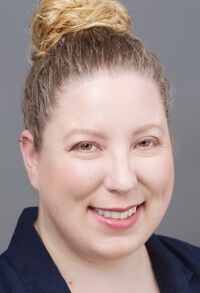Half Moon Bay is continuing to struggle with filling its hotel rooms — typically an important tax revenue stream for the city — to full occupancy, Krystlyn Giedt, Coastside Chamber of Commerce CEO, said in a presentation on the city’s Business Improvement District.
In 2024, annual occupancy rates for the 18 hotels on the coastside fell at 57%, a 2% increase from the year prior. Post-pandemic, the corporate groups that typically make up mid-week hotel stays have not rebounded, and an increase in travel seems largely limited to a one-year boom in 2022.
“Our goal is to get those coveted corporate groups to come and do conferences here, and retreats,” Giedt said. “Unfortunately, corporate has been way slower to come back than anybody ever anticipated. We are still working on that, it’s just not a segment that has a lot to offer right now.”
Data also shows that average room rates in Half Moon Bay are increasing over time — in 2023, the average price for a room was $467, and in 2024, the average price was $610.
Half Moon Bay’s Chamber of Commerce uses the revenue generated by the Business Improvement District, which up until 2024 collected $1 per hotel room per night, for marketing purposes. Recently, the BID’s funding was increased to $2 per hotel room per night, which will be reflected in future years, Giedt said.
At its May 20 meeting, councilmembers unanimously voted to move forward with collecting that same assessment, at $2 a night per room, for the upcoming 2025-26 fiscal year.
She pointed to positives in the current data, including website views trending upwards after a revamp of the page last year and an increase in articles written about Half Moon Bay.
“It’s been a bit of a rebuilding year. We’ve had some really cool results even taking that into account,” Giedt said.
As corporate events slowly rebound, the Chamber of Commerce is focused on incentivizing mid-week leisure travel, she said, noting that the city’s most common domestic visitors come from warmer places in Central California.
The group will also be hiring a professional marketing firm with the increased BID funding, Giedt said, and plans to survey visitors in the coming year.
In addition, Giedt said the indirect economic impact of Half Moon Bay’s $8.4 million in hotel tax for the past year totaled to $7.9 billion when factoring in the cost of hotel stays, wages that workers are paid and how they subsequently spend those wages in the community.
Mayor Robert Brownstone lauded the perseverance of the chamber despite the economic and social uncertainties having a negative impact on hotel stays.
“I know during these uncertain times it makes your work a lot harder, it’s more challenging — and I think you earn every penny of the money we collect here,” he said.
























(0) comments
Welcome to the discussion.
Log In
Keep the discussion civilized. Absolutely NO personal attacks or insults directed toward writers, nor others who make comments.
Keep it clean. Please avoid obscene, vulgar, lewd, racist or sexually-oriented language.
Don't threaten. Threats of harming another person will not be tolerated.
Be truthful. Don't knowingly lie about anyone or anything.
Be proactive. Use the 'Report' link on each comment to let us know of abusive posts.
PLEASE TURN OFF YOUR CAPS LOCK.
Anyone violating these rules will be issued a warning. After the warning, comment privileges can be revoked.